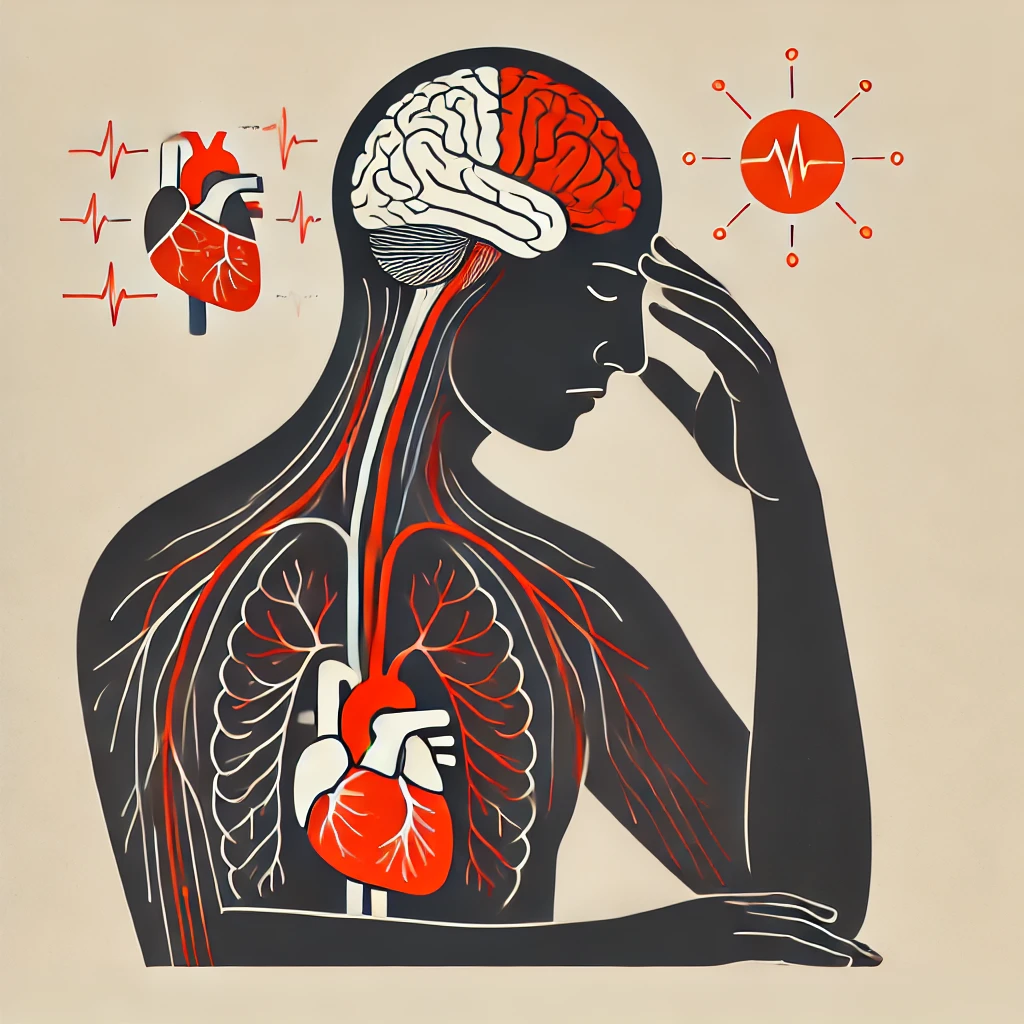Ever wondered how stress affects your body beyond just making you feel anxious or overwhelmed? The answer lies deep within your nervous system.
Stress triggers a cascade of physiological responses in the body, known as the “fight or flight” response. This immediate reaction, orchestrated by the nervous system, prepares us to face perceived threats. However, chronic stress can lead to long-term detrimental effects on nervous system health.
Understanding both the immediate and long-term impacts of stress on the nervous system is crucial for maintaining overall health. It helps in identifying stressors early, managing stress more effectively, and mitigating potential health issues.
In this article, you will learn about the physiological responses to stress, the role of the sympathetic nervous system (SNS), the release of stress hormones, and the long-term effects of chronic stress on nervous system health.
Physiological Response to Stress
The physiological response to stress, commonly referred to as the “fight or flight” response, is an automatic reaction that occurs when the body perceives a threat. This response is mediated by the sympathetic nervous system (SNS).
Activation of the Sympathetic Nervous System (SNS):
The SNS prepares the body to respond to threats by increasing heart rate, blood pressure, and energy supply. This activation ensures that the body can respond quickly and efficiently to danger.
During a stressful event, such as a job interview, the SNS activates, causing physical symptoms like a racing heart and sweaty palms. These changes are designed to enhance alertness and physical readiness.
Release of Stress Hormones:
The primary stress hormones, cortisol and adrenaline, are released from the adrenal glands. These hormones provide a quick burst of energy and heightened alertness.
In immediate stress situations, such as narrowly avoiding a car accident, cortisol and adrenaline surge through the body, helping you react swiftly. However, chronic elevation of these hormone levels can be harmful, leading to conditions such as hypertension and impaired immune function.
Physiological Changes:
Under stress, several physiological changes occur: pupils dilate to improve vision, digestion slows to divert energy to more critical functions, and muscles tense up in preparation for rapid action.
These changes are beneficial in short-term, acute stress situations. For instance, if you’re about to give a public speech, the dilation of pupils enhances focus, while the increased muscle tension helps maintain an alert posture. However, if these responses are prolonged, they can lead to chronic health issues such as gastrointestinal problems and muscle fatigue.
Chronic stress, characterized by prolonged and persistent activation of the stress response, can have detrimental effects on the nervous system and overall health. Understanding these long-term impacts is crucial for taking proactive steps to manage stress.
Chronic Activation of the SNS:
Persistent activation of the sympathetic nervous system (SNS) can lead to various health issues, including high blood pressure, heart disease, and metabolic disorders. Continuous stress keeps the body in a heightened state of alertness, which is not sustainable in the long term.
Studies have shown that individuals with chronic stress are at a higher risk for cardiovascular diseases. For instance, a report from the American Heart Association indicates that chronic stress can contribute to hypertension and increase the likelihood of heart attacks and strokes.
Effects on the Brain:
Chronic stress can cause structural changes in the brain, particularly affecting the prefrontal cortex and amygdala. The prefrontal cortex, responsible for executive functions such as decision-making and impulse control, can shrink, while the amygdala, involved in processing fear and emotional responses, can become enlarged.
Research conducted by Yale University found that chronic stress can lead to the loss of neurons in the prefrontal cortex, reducing its size and function. Conversely, the amygdala can grow, making individuals more susceptible to anxiety and fear-based responses.
Mental Health Consequences:
Long-term stress increases the risk of developing mental health disorders such as anxiety, depression, and post-traumatic stress disorder (PTSD). The continuous release of stress hormones like cortisol can alter brain chemistry and affect mood regulation.
Real-world case studies, such as those documented by the National Institute of Mental Health (NIMH), illustrate how chronic stress can lead to significant mental health challenges. For example, individuals exposed to prolonged workplace stress often exhibit symptoms of depression and anxiety.
Neurotransmitter Imbalance:
Chronic stress disrupts the balance of neurotransmitters, leading to mood disorders and cognitive issues. Neurotransmitters like serotonin and dopamine play critical roles in regulating mood, and their imbalance can contribute to conditions like depression and anxiety.
Clinical studies highlight how chronic stress can lower serotonin levels, leading to depressive symptoms. Similarly, disruptions in dopamine levels are linked to both depression and anxiety, impacting motivation and pleasure.
Recap the key aspects discussed:
- The physiological response to stress involving the activation of the SNS and the release of stress hormones.
- The long-term effects of chronic stress on the nervous system, including structural brain changes, cardiovascular risks, mental health consequences, and neurotransmitter imbalances.

